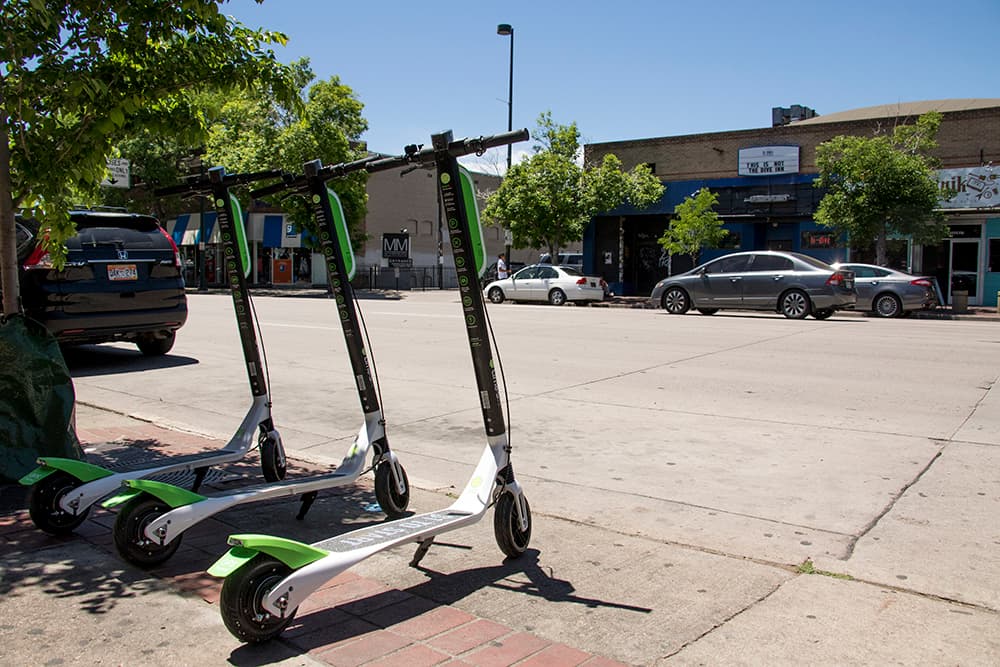If a meeting Tuesday was any indication, the road for Lime and Lyft to become the city's exclusive providers of scooters and e-bikes could be bumpy.
Denver City Council's transportation committee voted 5-2 to forward two contracts for each company to the full council, but only after lawmakers questioned whether the agreements would deliver on their promise to provide mobility options for the entire city. Councilmembers Candi CdeBaca and Amanda Sandoval voted against moving the contracts forward after spending much of Tuesday's meeting criticizing them.
The contracts aren't costing the city any money, but they are costing residents a valuable resource: the public right of way.
Sandoval and Councilmember Paul Kashmann raised doubts about whether the companies would follow through on their promise of keeping the public right away free of unused scooters and bikes. Both gave firsthand accounts of seeing scooters in places they shouldn't be, including sidewalks. Electric scooters are only allowed on any city streets allowing bikes. (Kashmann voted to forward the contracts to the full council.)
"We're providing our right of way for free," Sandoval said. "So I do think we are giving (the companies) something, and I do think it comes at a great cost."
Sandoval did not support the contracts' five-year timeframe, raising concerns about whether the companies will continue to invest in their micro-mobility options (Lyft is known for its car service). She grilled the members of the city's Department of Transportation and Infrastructure, which will oversee the two contracts, over what she called a lack of effort to get public feedback on the project.
Senior City Planner Stephen Rijo said the companies would be required to deploy scooters and bikes in every neighborhood in the city except at DIA. He said the city chose a five-year agreement to give Lyft and Lime more time to develop the program.
CdeBaca, who said her district has the highest number of scooter users, also had an issue with the length of the contracts, and that they only allowed for two companies.
The companies would be contractually obligated to install 100 stations during the first six months, with 200-plus stations after the first year and 300 to 400 stations during the last three years. These include charging stations, corrals and painted boxes to park scooters and bikes.
The companies will have two hours to address complaints about a bike or scooter improperly placed in the right of way. Failure to address the complaints would be considered a violation. If 10 violations are reported during a 90-day period, a company would lose 10 percent of its fleet for 30 days. The city's right of way enforcement team will be responsible for cataloging these discrepancies, and 311 will be available for people to report when bikes and scooters are left where they shouldn't be.
Jason Gallardo, director of government affairs for DOTI, said Lyft and Lime will be responsible for helping train people to dock bikes and scooters properly, though councilmembers voiced skepticism about how that would be accomplished.
The full City Council will vote on the contracts next month.













